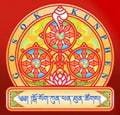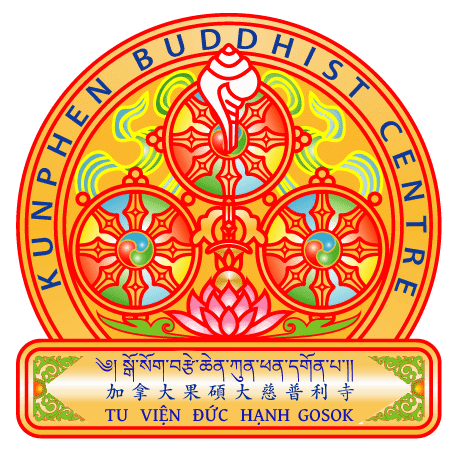Sakara, the “Lotus-Born”, was one of the 84 Indian Vajrayana Mahasiddhas….
薩噶拉,”蓮花生”,是古印度金剛乘八十四大成就者之一….
成就者印札菩提祈請神明與本尊所得之子,出生於一片大海中的蓮花上,因此被取名湖生的靈童,父母死後繼承王位,卻將王位讓與其弟,前往希利達納出家。途中觀音化身比丘點化,傳授喜金剛灌頂與教法。之後其在希利達納遇見一瑜珈士惹瑪,以作為僕人換取薩噶拉成就時傳授教法。
薩噶拉在山洞修習十二年,期間遇到飢荒,但為不影響上師,僕人隱瞞不說,直到一日不支摔倒才被上師發現,上師便用米做食子召請龍王降雨以及降穀物寶石,讓大家得到解脫。之後,薩噶拉傳授惹瑪灌頂,讓他得到世俗成就,並令他至希利巴瓦塔廣行利生,隨後便前往空行淨土。
惹瑪後以神通娶了一國國王的公主,定居於希利巴瓦塔附近,在此廣建寺院,最後也都進入空行淨土。(維基百科)
Indrabhuti was the great king of Kanci. However, he did not have a son. So he prayed to both the worldly and the transmundane deities for a son to be born to him. One day, a being took residence in his wife’s womb. Thoughts of joy arose in her. She had many miraculous signs. When asked, the scholars and Brahmans, they said it was the sign that a Bodhisattva will be born.
Nine months later, in the waxing fortnight, Saroruha was born in the center of a lotus, on a great lake. There fell a rain of desirable things in the area. Everyone was amazed. They realized that it was the power of the child. After this son was born, there came two other sons. When the mother and father died, the people gave the kingdom to the eldest, but he gave it to his younger brothers and became a monk.
He then went to Sridhana. On the way, Avalokitesvara appeared to him in the form of a monk. The prince did not recognize him. The monk then asked if he would like to meet with the Sambhogakaya. At that, the prince did reverence and asked for instructions. Avalokitesvara then manifested his true form and initiated the prince, and then gave him instructions.
When he reached Sridhana, he met a man desiring to be a yogin. The man wished to serve the prince. He requested to be given instructions once the prince attained siddhi. The prince agreed. He then went to a cave and practiced for 12 years.
During this time, a great famine struck the land. Many people died. Afraid he would disturb his guru, the servant lived on the leftovers of the guru’s food. One day, when there was no food left to be found, he went to the palace where he managed to get a bowl of rice gruel. Being weak from no food, he fell in front of the cave and spilled some of the rice. At last, the servant was forced to tell his guru about the famine. The guru then said he had a method of alleviating hunger.
He collected a large amount of rice and made a torma beside a river. He stirred up the eight great nagas by meditating on their symbols and mantras. He brought these nagas overhead by the power of his thoughts. The guru then instructed the nagas to rain down food on the first day; on the second day, grain; on the third day, rain down jewels, and then finally, rain down water. The nagas did what Saroruha had instructed and people were free from their sufferings. The people took faith in him.
Saroruha then initiated his former servant, whose name was Rama. He gave Rama instructions whereby he obtained the worldly powers of siddhi. The guru then instructed his disciple to work for the benefit of living beings and to go to Sriparvata. The guru then went to the realm of the Dakas.
Rama brought the daughter of a king to the neighborhood of Sriparvata with his power. They both built temples and finally went to the realm of the Dakas themselves.
Mahasiddha Rahula ||
大成就者 惹呼拉
84 Mahasiddhas ||
84 大成就者
Mahasiddha Samudra ||
大成就者 薩目達



